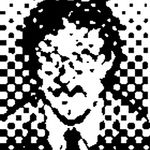- Home
- Illustrator
- Discussions
- Re: Shape builder leaves a faint stroke on solid (...
- Re: Shape builder leaves a faint stroke on solid (...
Copy link to clipboard
Copied
I'm having an issue with the Shape Builder tool where – no matter what I do, subtracting leaves a faint "stroke" from the object that lies "behind" the merged object. To illustrate this I added a cyan rectangle behind the object which was created with the Shape Builder tool by overlapping a cyan rectangle over the red rectangle and then subtracting the cyan segment.
These objects had no stroke and were pure solids. Despite this, I tried expanding the objects and expanding appearance beforehand but nothing seems to work and the faint non-stroke appears anyway. As it is, I can't really use the shape builder tool for anything.
Any assistance is greatly appreciated!
 1 Correct answer
1 Correct answer
Hi Ton!
This seemed to the trick when I used the Pathfinder's Unite command to create a compound path – the regular option merges the objects to on color, which is not what I want. I'll try this method on more complex artwork that I'm currently working on and get back to this thread if needed.
Many thanks for your assistance, Ton 🙂
Explore related tutorials & articles
Copy link to clipboard
Copied
Does changing preview from GPU to CPU (Cmd E or Ctrl E) make it disappear?
Is it visible in Outline view?
Copy link to clipboard
Copied
Hi Ton and many thanks for your quick response!
You are correct – outlines are visible in the Outline view (tried with new shapes). Switching between CPU and GPU previews does not make them disappear, however:
I greatly appreciate your expertise with this issue.
Copy link to clipboard
Copied
In case of the line visible in the cyan area you could try to Unite them with the Pathfinder and set the Pathfinder option to a high precision
Copy link to clipboard
Copied
Hi Ton!
This seemed to the trick when I used the Pathfinder's Unite command to create a compound path – the regular option merges the objects to on color, which is not what I want. I'll try this method on more complex artwork that I'm currently working on and get back to this thread if needed.
Many thanks for your assistance, Ton 🙂
Copy link to clipboard
Copied
Good to hear that.
Copy link to clipboard
Copied
Hi Ton!
Unfortunately this seemed to be a luck-of-the-draw type anomaly, as I tried to replicate my initial success with the Pathfinder's Make Compound Path option, but now the shapes are combined to a single color despite this. I tried this again with new and existing shapes. Oddly it worked once again on one instance but immediately afterwards the function reverted to uniting the shapes to one color.
I tried this option both on an artboard and outside of it for A/B-testing. Truly a weird phenomenon.
Copy link to clipboard
Copied
Are you referring to "Make compound shape"?
It will always be one single color for the result.
Copy link to clipboard
Copied
Hi Monika!
Yes I meant the "Make Compound Shape" under Path Finder's "Unite" -function. For some reason it seems to randomly (but rarely) work by retaining the other shape's color (which is what I want, and which I assumed the Shape Builder tool would do automatically without the faint strokes that currently make this tool unusable).
My process (integrating Ton's suggestion) has been:
1. Make two shapes (pure solids, without stroke) of different color and overlap them.
2. Select both shapes and subtract a piece from the overlapping shape (at this point the faint stroke is visible).
3. Select both shapes and use Path Finder's "Unite" function with "Make Compound Shape" in an attempt to remove the faint stroke created by the Shape Builder tool.
I have a feeling the Shape Builder tool has, at some point, worked correctly without adding these faint strokes since I've used it for several years without issue. I only noticed the issue now as I was creating new artwork. I also have the latest Nvidia and Lenovo (currently using a Lenovo P15v Gen3 laptop at work). Really frustrating.
Copy link to clipboard
Copied
What seems to have worked for this – need to confirm on more intricate artwork is this:
1. Make two shapes (pure solids, without stroke) of different color and overlap them.
2. Select both shapes and subtract a piece from the overlapping shape (at this point the faint stroke is visible).
3. Select both shapes and use Path Finder's "Divide" function to remove the faint stroke.
I wouldnt've gotten this far without both of your help – I greatly appreciate your input. I'll confirm whether this solution worked for me later.
Copy link to clipboard
Copied
A Compound Shape will always be one unified color. No exception unless you include serious Appearance tinkering that include additional fills and effects.
What you can do instead of the shapebuilder: use Live Paint. It creates a live object that doesn't create these thin lines until you expand it. So if you export that to pixels while it is still live, it will work. If you export a PDF, the Live paint object again will be expanded and might have faint lines.
Copy link to clipboard
Copied
That sounds awesome – thank you Monika! I'll try this method out for sure as well.
Have a great weekend!
Copy link to clipboard
Copied
Vanjazz,
How about an Opacity Mask, where you change the overlapping rectangle from cyan to black, then select the red one as well and click Make (Opacity) Mask in the Transparency palette flyout?
Find more inspiration, events, and resources on the new Adobe Community
Explore Now



